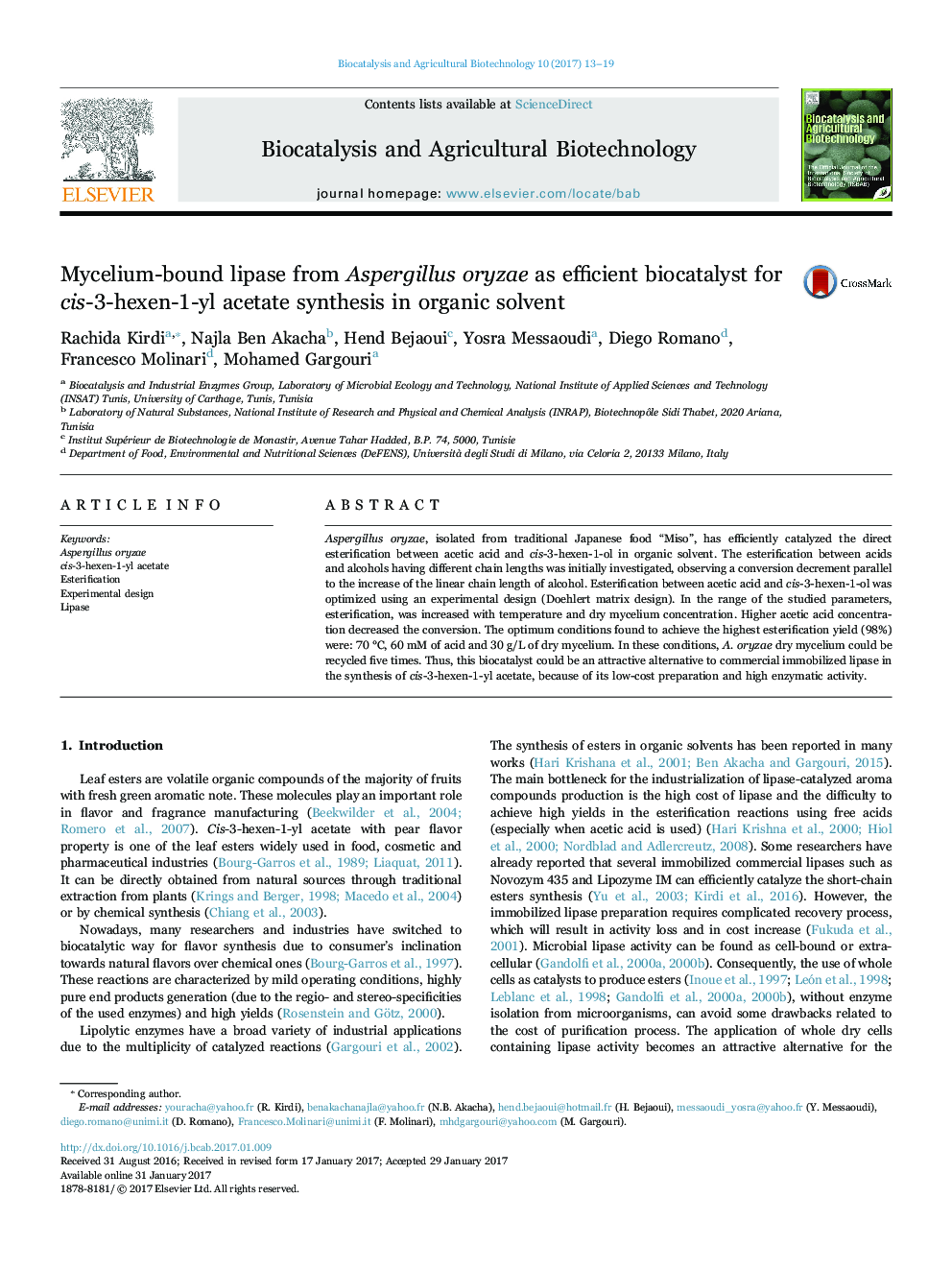| Article ID | Journal | Published Year | Pages | File Type |
|---|---|---|---|---|
| 5520458 | Biocatalysis and Agricultural Biotechnology | 2017 | 7 Pages |
â¢Whole mycelium of A. oryzae, isolated from Japanese food, catalyzed efficiently the synthesis of esters.â¢Optimization of cis-3-hexen-1-yl acetate synthesis has been achieved by using Doehlert matrix.â¢Using optimized conditions, the conversion reached 98%.
Aspergillus oryzae, isolated from traditional Japanese food “Miso”, has efficiently catalyzed the direct esterification between acetic acid and cis-3-hexen-1-ol in organic solvent. The esterification between acids and alcohols having different chain lengths was initially investigated, observing a conversion decrement parallel to the increase of the linear chain length of alcohol. Esterification between acetic acid and cis-3-hexen-1-ol was optimized using an experimental design (Doehlert matrix design). In the range of the studied parameters, esterification, was increased with temperature and dry mycelium concentration. Higher acetic acid concentration decreased the conversion. The optimum conditions found to achieve the highest esterification yield (98%) were: 70 °C, 60 mM of acid and 30 g/L of dry mycelium. In these conditions, A. oryzae dry mycelium could be recycled five times. Thus, this biocatalyst could be an attractive alternative to commercial immobilized lipase in the synthesis of cis-3-hexen-1-yl acetate, because of its low-cost preparation and high enzymatic activity.
